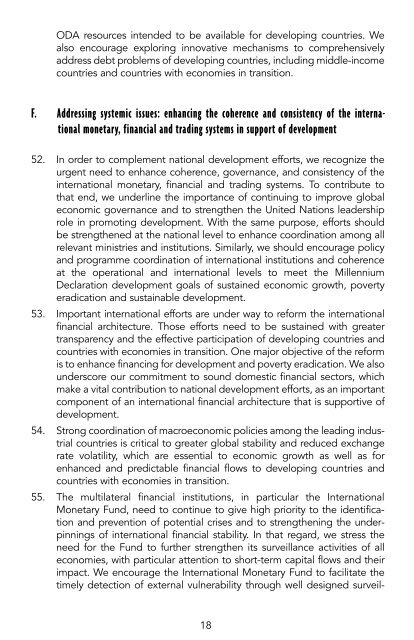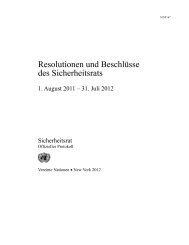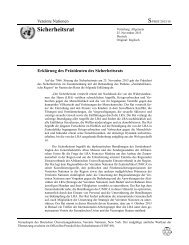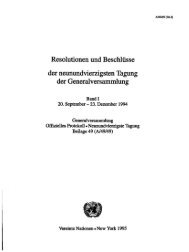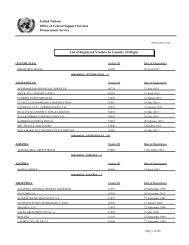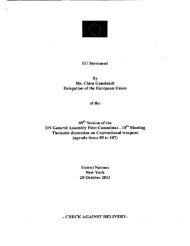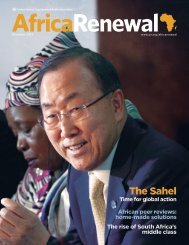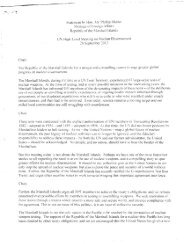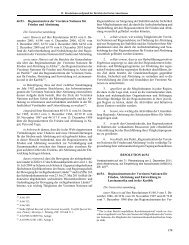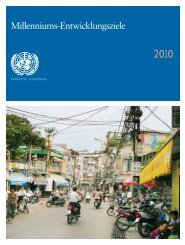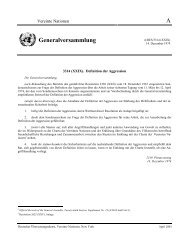Monterrey Consensus
Monterrey Consensus
Monterrey Consensus
You also want an ePaper? Increase the reach of your titles
YUMPU automatically turns print PDFs into web optimized ePapers that Google loves.
ODA resources intended to be available for developing countries. We<br />
also encourage exploring innovative mechanisms to comprehensively<br />
address debt problems of developing countries, including middle-income<br />
countries and countries with economies in transition.<br />
F. Addressing systemic issues: enhancing the coherence and consistency of the interna-<br />
tional monetary, financial and trading systems in support of development<br />
52. In order to complement national development efforts, we recognize the<br />
urgent need to enhance coherence, governance, and consistency of the<br />
international monetary, financial and trading systems. To contribute to<br />
that end, we underline the importance of continuing to improve global<br />
economic governance and to strengthen the United Nations leadership<br />
role in promoting development. With the same purpose, efforts should<br />
be strengthened at the national level to enhance coordination among all<br />
relevant ministries and institutions. Similarly, we should encourage policy<br />
and programme coordination of international institutions and coherence<br />
at the operational and international levels to meet the Millennium<br />
Declaration development goals of sustained economic growth, poverty<br />
eradication and sustainable development.<br />
53. Important international efforts are under way to reform the international<br />
financial architecture. Those efforts need to be sustained with greater<br />
transparency and the effective participation of developing countries and<br />
countries with economies in transition. One major objective of the reform<br />
is to enhance financing for development and poverty eradication. We also<br />
underscore our commitment to sound domestic financial sectors, which<br />
make a vital contribution to national development efforts, as an important<br />
component of an international financial architecture that is supportive of<br />
development.<br />
54. Strong coordination of macroeconomic policies among the leading industrial<br />
countries is critical to greater global stability and reduced exchange<br />
rate volatility, which are essential to economic growth as well as for<br />
enhanced and predictable financial flows to developing countries and<br />
countries with economies in transition.<br />
55. The multilateral financial institutions, in particular the International<br />
Monetary Fund, need to continue to give high priority to the identification<br />
and prevention of potential crises and to strengthening the underpinnings<br />
of international financial stability. In that regard, we stress the<br />
need for the Fund to further strengthen its surveillance activities of all<br />
economies, with particular attention to short-term capital flows and their<br />
impact. We encourage the International Monetary Fund to facilitate the<br />
timely detection of external vulnerability through well designed surveil-<br />
18


